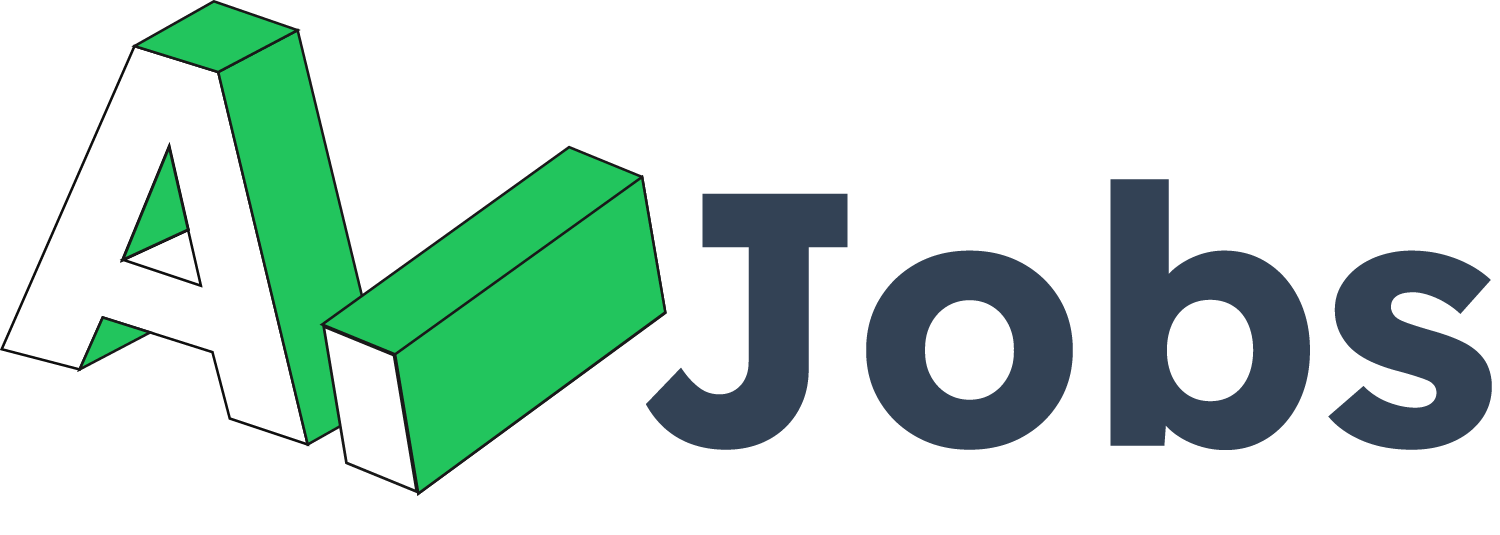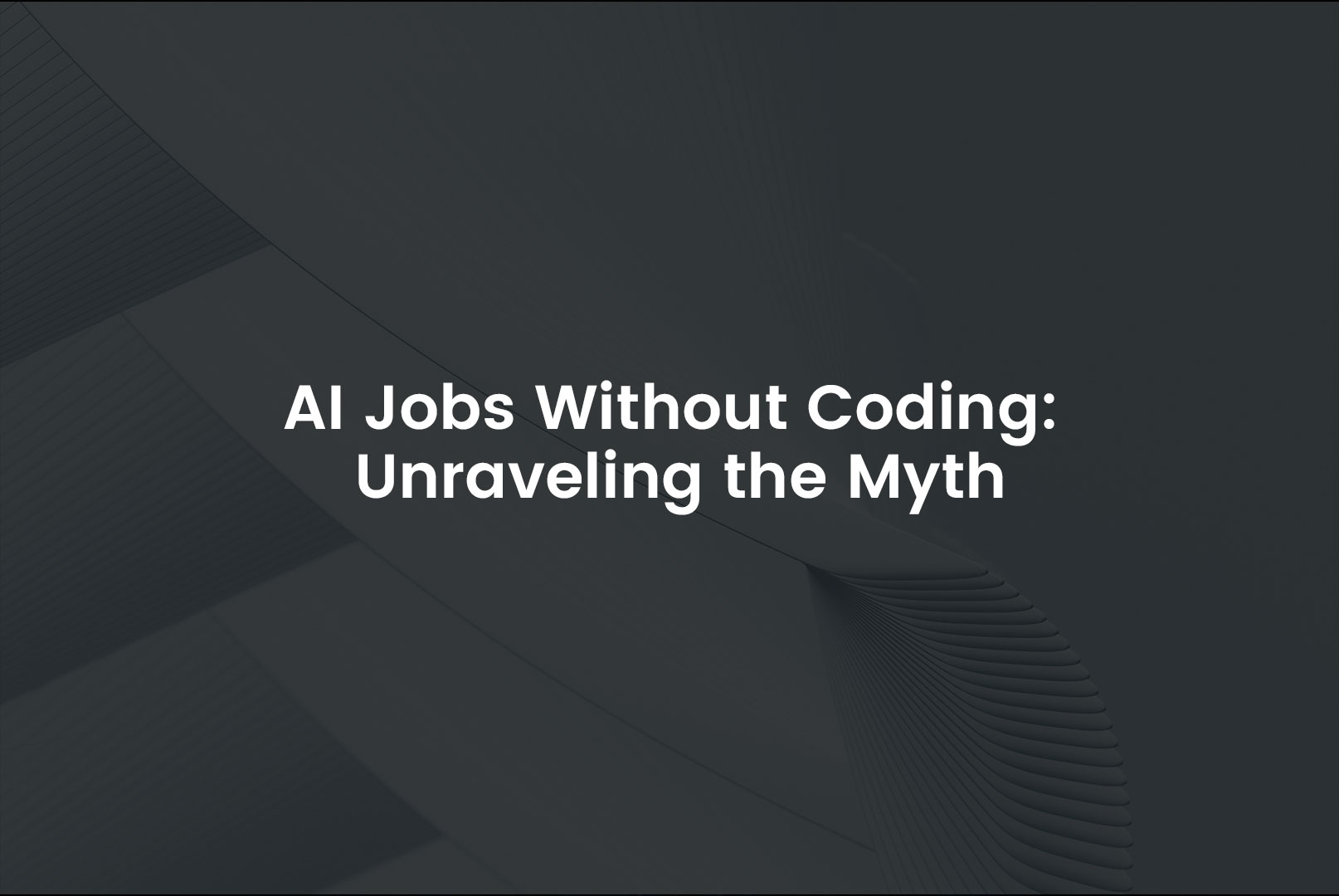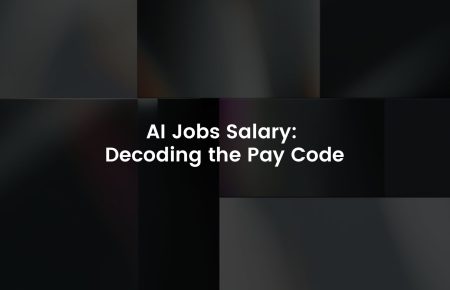Welcome to the era of artificial intelligence (AI), where the future is not just being written in code but also in the strategic plans, content, and policies that shape our world. The booming AI industry is bursting at the seams with job opportunities that stretch beyond the confines of traditional programming roles. Yes, you read that right! Not all AI heroes wear the coding cape. In fact, there’s a whole universe of non-coding roles waiting for you to explore. So, if the mere thought of Python makes you think of snakes rather than scripts, you’re in the right place.
Types of AI Jobs Without Coding
Expanding on the diverse landscape of AI jobs that don’t require coding, it’s evident that the AI industry offers a lot of opportunities for individuals with varied skills and interests. Each role plays a critical part in the broader ecosystem of AI, ensuring that technology not only advances but does so in a way that’s beneficial, ethical, and user-friendly. Let’s delve deeper into these roles and the unique contributions they make.
Business-Focused Roles
- AI Product Manager: Acts as the linchpin between the technical team and the business, ensuring that AI products meet market needs and user expectations. This role requires a deep understanding of both the capabilities and limitations of AI technologies and the ability to envision and execute product strategies.
- AI Sales & Marketing Specialist: Specializes in crafting compelling narratives around AI products, making complex technologies accessible and appealing to potential customers. This role is key to driving adoption and understanding the competitive landscape.
- Business Analyst for AI Solutions: Plays a crucial role in translating business requirements into AI opportunities, working closely with data scientists and engineers to conceptualize solutions that align with business objectives.
- Customer Success Manager for AI Products: Ensures that clients get the most out of AI products, addressing concerns and optimizing product usage. This role is vital for retaining customers and enhancing product value.
Content & Communication Roles
- AI Content Writer: Produces engaging content that demystifies AI, from blog posts and whitepapers to social media content, aiming to educate and engage a broad audience.
- AI Translator: Works on making AI more accessible across language barriers, not only translating text but also ensuring cultural and contextual relevance.
- AI User Experience (UX) Designer: Focuses on making AI applications intuitive and user-friendly, a crucial role as the interface is often the bridge between powerful AI capabilities and end-user effectiveness.
- AI Technical Writer: Develops clear and concise documentation for AI products, making it easier for users to understand and leverage AI tools and systems.
Data & Analysis Roles
- Data Analyst for AI Applications: Extracts insights from data, informing decisions and strategies in AI project development. This role requires a keen analytical mind capable of seeing patterns and trends that can guide AI training and implementation.
- Market Researcher for AI Trends: Identifies emerging trends and opportunities in the AI space, helping companies stay ahead of the curve and make strategic decisions based on market intelligence.
- AI Data Quality Specialist: Ensures the integrity and quality of data used in AI systems, a critical role since the output quality of AI models heavily depends on the input data quality.
- Business Intelligence Analyst for AI: Uses AI tools to analyze complex data sets, providing actionable insights that drive strategic business decisions.
Other Roles
- AI Project Manager: Manages AI projects from conception to delivery, coordinating between cross-functional teams to ensure projects meet deadlines, budgets, and expectations.
- AI Legal & Compliance Specialist: Addresses the legal and regulatory aspects of AI development and deployment, ensuring compliance with laws and ethical standards.
- AI Ethics & Policy Researcher: Focuses on the ethical implications of AI, researching and developing guidelines to ensure AI technologies are used responsibly.
- AI Educator & Trainer: Plays a pivotal role in teaching and training the next generation of AI professionals, from academic settings to corporate training programs, ensuring a well-informed workforce.
Each of these roles contributes to the fabric of the AI industry, ensuring that as AI technologies evolve, they do so with an eye towards ethical considerations, user experience, and business impact. The diversity of these roles also highlights the vast opportunities available for professionals looking to enter the AI field without a coding background, offering paths that leverage a wide range of skills and interests.
Essential Skills for Beginner Success
Analytical and Problem-Solving Abilities
Picture this: you’re faced with a mountain of data or a complex customer issue. The solution isn’t going to be found in a block of code; it’s hidden in your ability to think critically and solve problems creatively. This skill is about connecting dots that aren’t always visible. It’s like being a detective, but instead of solving crimes, you’re unraveling puzzles that help AI technologies work smarter and more efficiently. The key? Never assume the problem is straightforward. Sometimes, the issue isn’t the data itself but how it’s interpreted. Flex those brain muscles and approach problems with a Sherlock Holmes-level of curiosity and deduction.
Communication and Collaboration Skills
AI projects are team sports. They require the combined efforts of developers, data scientists, project managers, and non-technical staff to cross the finish line. Your ability to communicate complex AI concepts in simple, jargon-free language will make you the MVP in any team. Imagine translating the AI equivalent of Shakespeare into plain English that even your non-techie friends could understand. That’s the level of communication prowess needed. And let’s not forget about collaboration. It’s the secret sauce that makes the team greater than the sum of its parts. After all, the best AI solutions are born from diverse perspectives coming together.
Understanding of AI Basics
Know thy AI. It’s crucial to grasp the fundamentals of AI and machine learning, even if you’re not the one building the algorithms. Understanding what AI can and cannot do enables you to set realistic expectations, identify potential AI applications, and communicate effectively with technical teams. It’s like knowing the basic rules of football if you’re managing a football team. You don’t need to be the star quarterback, but you should know what a touchdown is. Resources abound for those eager to learn, from online courses to webinars, making this skill an accessible one to acquire.
Business Acumen and Market Awareness
AI is not just about technology; it’s a business lever. Having sharp business acumen means you can identify where AI can create value, make processes more efficient, or enhance customer experiences. It’s about seeing the big picture and the AI brush strokes within it. Similarly, market awareness lets you anticipate trends, understand the competitive landscape, and know what your customers expect before they do. It’s like being a chess master, always thinking several moves ahead. This skill ensures that AI solutions don’t just solve technical problems but also drive business success.
Quick Learner
The AI field is evolving at breakneck speed. New algorithms, tools, and applications emerge almost daily. Keeping up requires an insatiable curiosity and the ability to learn rapidly. This doesn’t mean you need to become an AI expert overnight but being open to continuous learning and staying updated with the latest trends and technologies is crucial. It’s akin to surfing; you need to keep paddling to catch the waves of innovation. Embrace the mindset of a student, always eager to learn more and adapt to changes. This agility is what will keep you relevant and in demand in the ever-evolving AI landscape.
Getting Started As a Beginner
Online Courses and Certifications
The internet is your oyster when it comes to learning AI. With platforms like Coursera, edX, and Udacity, you can dive into AI fundamentals or niche topics for free or at minimal cost. These courses not only offer knowledge but also projects to apply what you’ve learned. Completing these courses and earning certifications can significantly bolster your resume by showing your commitment and knowledge in AI.
Networking
The AI community is vast and welcoming. Engage with it through industry events, online forums, and social media platforms like LinkedIn and Twitter. Sharing insights, asking questions, and connecting with professionals can open doors to opportunities and provide valuable mentorship. Remember, networking is about giving as much as it is about receiving, so contribute positively to the community.
Hackathons and Projects
Hackathons are excellent for hands-on learning and innovation, allowing you to work on real-world problems and test your skills. Similarly, personal or collaborative projects related to AI can showcase your ability to apply AI concepts, even without coding. These experiences enrich your portfolio, demonstrating your practical knowledge and problem-solving skills to potential employers.
Highlight Transferable Skills
AI roles value a wide array of skills beyond coding. Your ability to solve problems, think critically, communicate effectively, and work collaboratively are all crucial in AI projects. Reflect on your experiences to identify these transferable skills and highlight them in your resume, interviews, and profiles. Show how these abilities make you a valuable asset in the AI industry.
By focusing on these areas, you can navigate the AI landscape confidently, leveraging online resources, building your network, engaging in practical projects, and showcasing your versatile skills. The AI field is as much about innovation and creativity as it is about technology, opening up numerous paths for those ready to explore.
The Future of AI Jobs
Unpacking the Demand
Why this surge in non-coding AI roles? Simply put, AI is not an island. It exists in a complex ecosystem that requires a multifaceted workforce. From ethical considerations and policy development to user experience and market strategy, the successful deployment of AI technologies depends on a broad spectrum of talents. This diversification of roles means that whether you’re a storyteller, a strategist, or a data enthusiast, there’s likely a place for you in the AI world.
The Importance of Continuous Learning
The AI field is dynamic, with new developments and discoveries happening at a breakneck pace. This environment rewards those who are curious, flexible, and eager to learn. Embracing continuous learning is not just about keeping up with the latest AI trends or technologies; it’s about staying adaptable and ready to seize new opportunities as they arise. The most successful professionals in the AI space will be those who view education as a lifelong journey, not a destination.
Career Growth and Specialization
The burgeoning demand for AI expertise opens the door to significant career growth and specialization opportunities. As you gain experience and knowledge, you can carve out a niche for yourself in areas such as AI ethics, policy, user experience, or business strategy. Specializing allows you to become a sought-after expert in your field, offering the chance to lead groundbreaking projects, influence industry standards, and shape the future of AI.
Conclusion
The world of AI is vast and varied, offering a plethora of opportunities for those willing to dive in, coding skills or not. Whether you’re a storyteller, a strategist, or a data enthusiast, there’s a place for you in AI. Don’t let the coding barrier hold you back from exploring a fascinating and rewarding career in artificial intelligence.
So, what are you waiting for? The future is here, and it’s coded in opportunities, not just programming languages. Dive into the resources, network, and begin your journey in AI today. And remember, our blog is always here to guide you through the maze of AI career paths, with a touch of humor and a lot of practical advice. Let’s embark on this exciting journey together, shall we?
Bonus
Did I mention that AI companies are desperately seeking individuals who can explain AI without resorting to tech jargon? Or that the demand for AI ethics experts is skyrocketing faster than you can say “algorithmic bias”? Keep an eye on job boards and our blog for specific examples of companies hiring for these roles. And don’t forget to check out online resources and learning materials to get you started. After all, in the world of AI, knowledge is not just power; it’s a career.
FAQs
Can I work in AI without knowing how to code?
- Yes, there are various roles in the AI field that don’t require coding skills, such as project management, AI ethics, and data annotation.
What skills are needed for AI jobs without coding?
- Skills needed include analytical thinking, understanding AI concepts, project management, ethical considerations, and collaboration.
Are there any specific industries where non-coding AI jobs are more prevalent?
- Non-coding AI jobs are particularly prevalent in industries like healthcare, finance, marketing, and customer service.
How can I get started in an AI job without coding experience?
- Start by learning the basics of AI and its applications, enhance your analytical skills, and look for internships or entry-level positions in AI-focused companies.
What roles in AI don’t require coding?
- Roles include AI project manager, AI business analyst, data annotator, AI ethicist, and user experience designer for AI systems.
What educational background is needed for a career in AI without coding?
- While a technical background is beneficial, degrees in business, psychology, or liberal arts can also lead to non-coding AI jobs with the right skills and training.
How important is understanding AI ethics for non-coding roles?
- Extremely important, as ethical considerations are central to deploying AI responsibly across various sectors.
Can non-technical people contribute to AI development?
- Yes, non-technical professionals can contribute significantly, especially in roles focusing on the application, impact, and ethical use of AI.
What are some resources for learning about AI without going into coding?
- Online courses, webinars, and books on AI fundamentals, applications, and ethics are great resources for non-coders.
How is the job market for non-coding roles in AI?
- The demand for non-coding roles in AI is growing as companies seek diverse skills to develop, deploy, and manage AI technologies responsibly.




